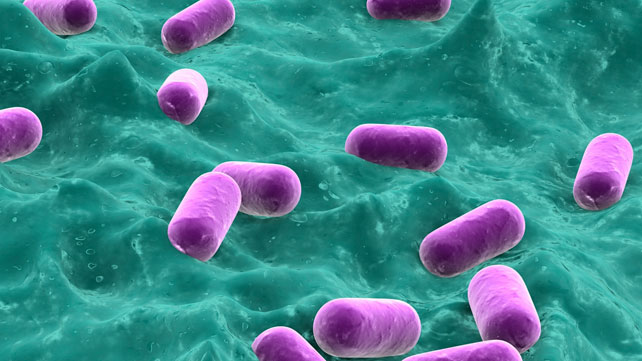Microbiomes & Cesarean Birth
Most patients worry their doctors will give them crap. But the folks who see Dr. Neil Stollman are absolutely begging for it.
Stollman is a gastroenterologist and chair of the Department of Medicine at Alta Bates Summit Medical Center in Oakland, California. He specializes in fecal microbiota transplants, or FMTs, which involve taking feces from a healthy patient and putting them into the body of a sick one.
Study after study has shown an FMT can cure a patient infected with the nasty bacterium Clostridium difficile (C. diff) almost overnight.
C. diff infections strike nearly 500,000 patients a year in the United States, and about 29,000 die. These infections are most common in patients who get intensive medical care along with antibiotics. And one in five people who contracts C. diff diarrhea will have to fight it off more than once. That’s where Stollman steps in.
“When a multiply recurrent C. diff patient gets to me, I never have to convince them — they are so far past the ‘ick factor,’” Stollman (affectionately called “the stool man”) told Healthline. “It’s a barrier more among doctors than among patients, surprisingly. Most of my patients have had to ask their doctors to send them to me.”
By the time patients make it to Stollman’s office, antibiotics have killed off the vast majority of the helpful bacteria that naturally live in their stomach, intestines, and colon, called the gut microbiome. These bacteria help the body digest food, fight harmful invaders, and keep inflammation in check. With no competition from good microbes, C. diff can thrive.
Stollman blends feces from a healthy, prescreened donor into a nightmarish smoothie, and patients receive the concoction rectally. It’s not fun by any means, but microbes from the donor stool quickly take up residence in the patients’ guts, bringing the microbiome back into balance and sometimes saving their lives.
Researchers are exploring ways to deliver FMTs using frozen stool or bacteria alone in the form of a pill.

